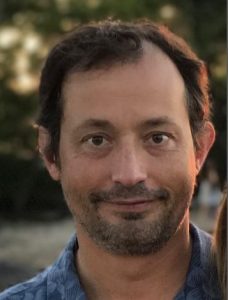
Nov. 26, 2017
Effects of evolutionary pressure on histone modifications
With the advent of next-generation sequencing technologies, a considerable effort has been put into sequencing the epigenomes of different species. The efforts such as “Encode” and “Roadmap” epigenomics projects provide an opportunity to compare epigenomes across species (especially between human and mouse). This study is an effort to understand how different histone modifications vary/co-appear between orthologous regions of the two species. In this work, we have used various measures of orthologous similarity between each pair of orthologous genes and explore how histone modifications are conserved with respect to changes in these similarity measures. These measures of similarity include “codon usage…

Nov. 15, 2017
An Interventional Informatics Approach to Development and Evaluation of Population-based Health and Web Technologies
Interventional informatics is the use of health information technology (HIT) which drives evidence-based and evidence-generating practices to inform an improved health delivery system. Current HIT lacks movement towards data-driven infrastructures designed to promote information gathering, sharing, and new knowledge discovery in several areas. This thesis undertakes three specific areas where gaps exist. First, in undertaking quality improvement initiatives aligned with fidelity to program models, a web-based practice exchange was designed, built, tested and launched. Second, a systematic review of eHealth technology instruments for outcomes and evaluation components geared towards patient outcomes was conducted, uncovering gaps in the availability of psychometrically…

Nov. 3, 2017
Investigating genome composition in multiple bee species
The honey bee Apis mellifera was the first eusocial animal to have its genome assembled. Analysis of the complete draft sequence of the honey bee genome revealed several interesting features compared with the other metazoan genomes: a low but heterogeneous GC content, an overabundance of CpG dinucleotides and a lack of repetitive elements. The average GC content of the honey bee genome is only 33%, but GC content is highly heterogeneous, ranging from 11% to 67%, with a bimodal distribution. Furthermore, unlike genes in most other metazoans, honey bee genes are overly abundant in regions of low GC content (<30%).

Oct. 23, 2017
A Geospatial Health Context Table for Supporting Public Health Research
This project develops a Big Data table that allows researchers to query across and among multiple data sources integrated by location. The big table created in this way uses location as the fundamental linkage between data sets. This is the power of geospatial analysis and forms the foundation for the development and interaction with the Health Context Table. The approach utilizes a dense point file populated with attribution derived or obtained directly from public data sources and associated geospatial analysis. The database created extends across the entire continental United States comprising over 300 million points. The data table has at…

Oct. 11, 2017
Contrast mining to discover combinations of genetic factors associated with autism subgroups
Autism is characterized by a complex set of behavioral, social, and cognitive deficits. Extensive variation of these phenotypes suggests the existence of autism subtypes that likely have distinct genetic etiologies. The lack of unifying genotypes common to autism patients supports this subtype structure, and suggests that the onset of autism is due to combinations of genetic factors. The ability to precisely diagnose autism subtypes using genetic markers would lead to earlier and more specific treatments and improve outcomes, stressing the need for research which increases our understanding of the genetic etiologies of autism subtypes. In this research, we identify combinations…

Oct. 9, 2017
Dr. Gregory Alexander recently awarded AHRQ grant.
Dr. Gregory Alexander, from The Sinclair School of Nursing, was recently awarded a $1,995,522.00 AHRQ grant. This grant will support an interdisciplinary research team who are already contributing to clinical research in long-term care settings. The PI is a doctorally-prepared RN and fellow in the American Academy of Nursing with over two decades of work in diverse projects, settings and disciplines. Co-Investigators include Richelle Koopman, Lori Popejoy, Abu Mosa, and Chelsea Deroche.

Oct. 9, 2017
Understanding disease through integrated molecular and clinical analyses
Abstract:Traditional biomedical experiments are designed to study a single cohort for a single disease using a single technology. By studying disease with such a narrow lens, researchers make discoveries that are not reproducible because they are not representative of the real heterogeneity of disease. By integrating data from over 40 studies and 7,000 patients, we establish a robust signature of disease which correlates with disease activity and persists across blood, tissue, and sorted cell populations. We compare relationships of 104 diseases based on molecular and clinical manifestations from 41,000 gene expression samples and 2 million patient records. Finally, we contextualize…

Sep. 26, 2017
Epigenetic adaptation to environment in long lives trees
Oak represents a valuable natural resource across Northern Hemisphere ecosystems, attracting a large research community studying its genetics, ecology, conservation, and management. Here we introduce a draft genome assembly of valley oak (Quercus lobata) using Illumina, PacBio and Dovetail sequencing of adult leaf tissue of a tree found in an accessible, well-studied, natural southern California population. We next utilize this genome to carry out landscape epigenetics studies. DNA methylation in plants affects transposon silencing, transcriptional regulation and thus phenotypic variation. One unanswered question is whether DNA methylation could be involved in local adaptation of plant populations to their environments. If methylation…

Sep. 26, 2017
Blockchain Technologies for Healthcare – Technical Challenges and Potential Applications
Blockchain is a technology of distributed ledger originally applied in the financial world. Bitcoin is one of the most adoptable cryptocurrencies based on Blockchain technique. The success of Bitcoin in technology means Blockchain has the potential for decentralized transaction validation, data provenance, data sharing, and data integration in different fields. Ethereum is a Blockchain-based platform with smart contract functionality inside. Smart contract is similar to coded protocol which enforce the workflow of data sharing. To date, most of academic papers for Blockchain in non-financial domains are still very conceptual and creating skepticism about the applicability of the technology and what it can achieve. At MU, we are experiencing the Ethereum platform to develop informatics tools for…